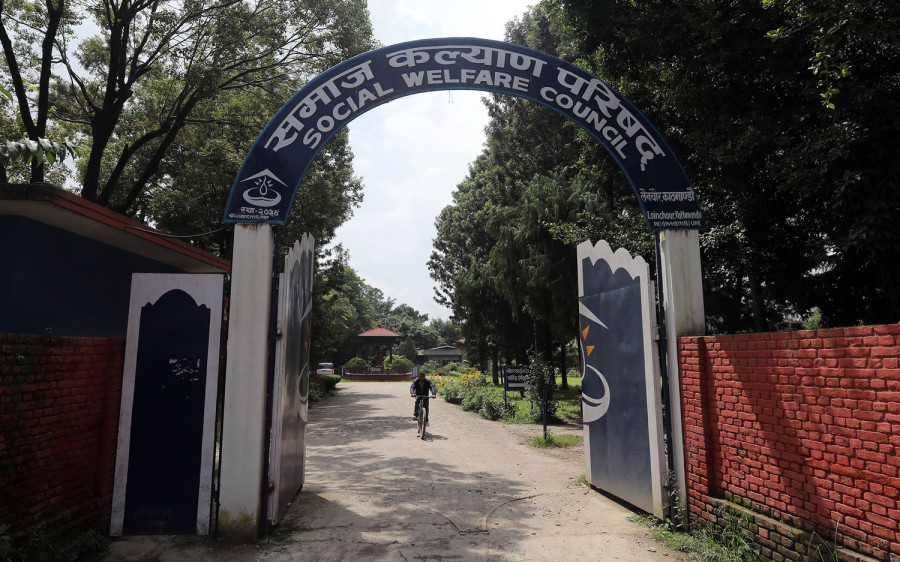National
NGOs rush to Social Welfare Council after district offices refuse to renew registration
While government agencies say they want to check unethical activities, social organisations see it as a bid to control them.
Prithvi Man Shrestha
Society of Public Health Engineers, Nepal has reached out to the Social Welfare Council after Kathmandu District Administration Office refused to renew its registration without the council’s approval of the programmes run by the organisation in the last fiscal year.
The organisation was established in 1990 with the aim of capacity building for professionals working in the areas of water, sanitation and hygiene and support the government for enhanced services in these areas through workshop, seminar, training and dialogue.
Ram Sharan Adhikari, an official at the NGO who was at the council on Monday, said they approached the council to seek approval for the programmes run by his organisation as per the directive of the Kathmandu District Administration Office.
According to officials at the council, a number of NGOs have approached the council to get their programmes approved after district administration offices refused to renew their registrations for running programmes without council’s approval.
As of the first four months of the current fiscal year, as many as 13 NGOs have approached the council for the purpose. Sixty-three NGOs had contacted the council for a similar purpose in the last fiscal year 2018-19.
As per the Social Welfare Act, an NGO should run programmes only after taking the council’s approval.
But officials at the council said that some NGOs don’t comply with the provision— either due to ignorance or they think they are exempted from the rules and regulations
“If one fails to get programme approval due to lack of knowledge about the process, the council can approve for one time by issuing a warning letter so that the concerned NGO can correct itself,” reads the Programme Approval Guideline issued by the council. “If the same NGO makes the same mistake for a second time, it will be punished.”
Shiva Kumar Basnet, spokesperson for the council, said the council recently penalised Nyaya Health Nepal, which was involved in providing integrated health services in Achham and Dolakha. The organisation runs a hospital in Achham.
Those NGOs that have spent a significant amount on their programmes have approached the council for approval.
During the first four months of this fiscal year, 13 NGOs had spent Rs1.03 billion in their programmes.
According to Janak Raj Dahal, chief district officer of Kathmandu, his office is tightening screws on NGOs which have engaged in commercial activities despite registering as non-profits and those who implemented programmes without taking the council’s approval.
“There are NGOs that run schools and hospitals and charge huge amount of fees,” said Dahal. “So we have sought tax clearance certificates and additional approval from various government agencies that grant the approval to conduct businesses before renewing their registration.”
Meanwhile, the concerned NGOs say that district administration offices are being unnecessarily stringent. The move, according to them, appears to be part of the government’s effort to crack down on NGOs.
“We have got a lot of complaints about the difficulty being created by district administration offices to renew registrations by seeking additional documents,” Jitram Lama, president of the NGO Federation, a grouping of local NGOs, told the Post in a recent interview.
As the government is bringing a new law on social organisations, NGOs are concerned about possible stringent provisions to operate in the country.
A draft of the law prepared by the Home Ministry is currently at the Bill Committee of the Cabinet.
While officials remained tightlipped about the provisions of the proposed bill, domestic and international non-government organisations have expressed concern about the proposed law.




 13.12°C Kathmandu
13.12°C Kathmandu














